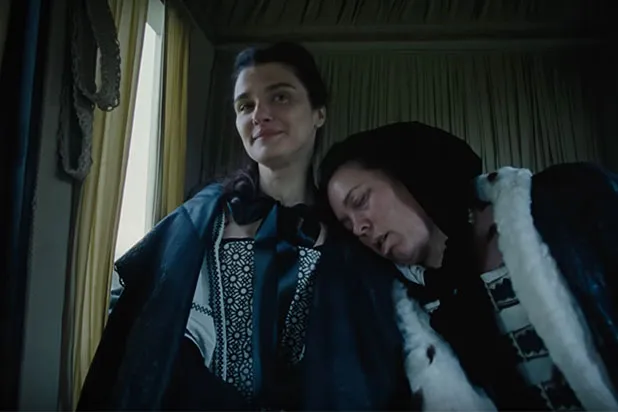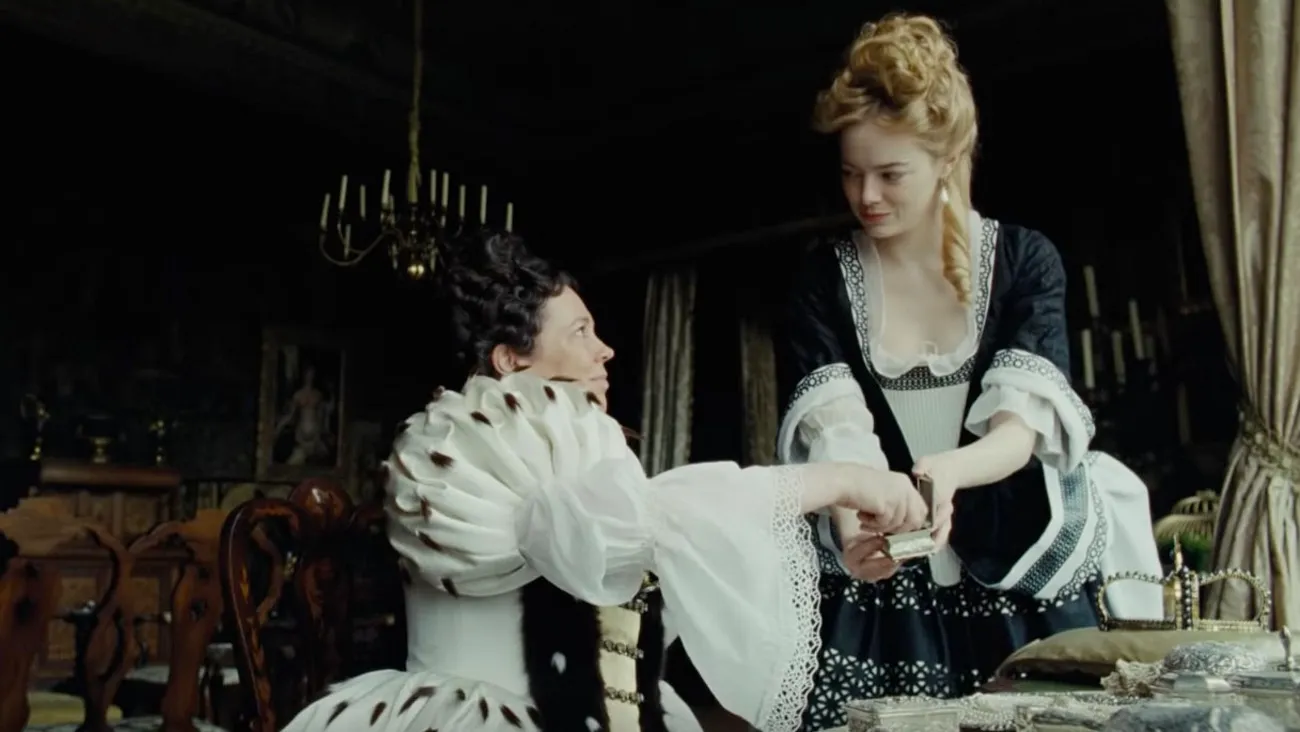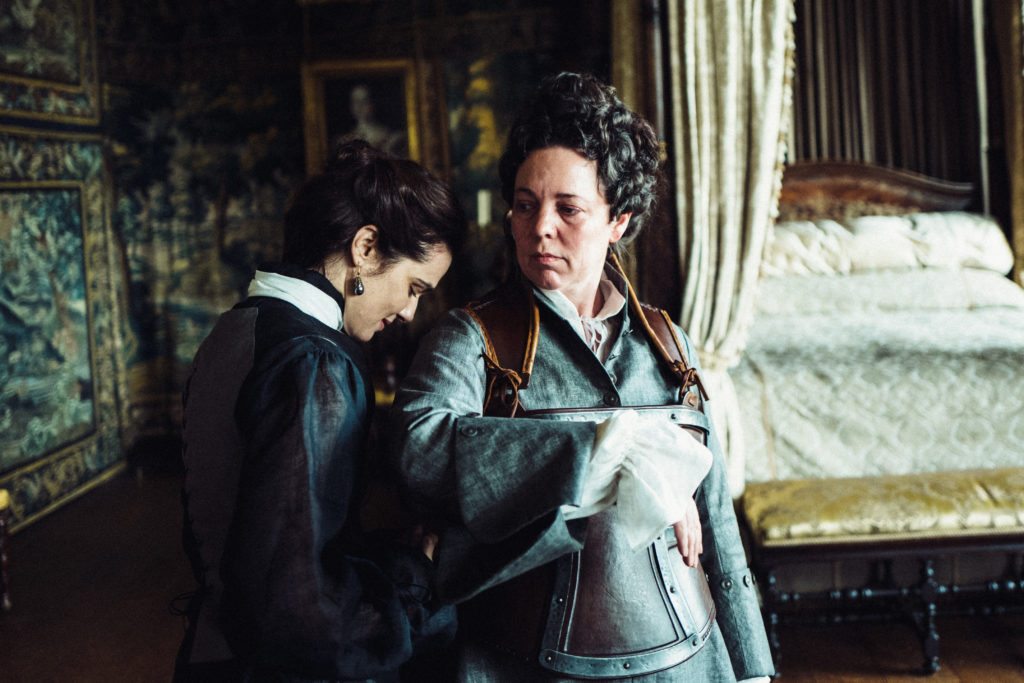Oscars nominees Rachel Weisz and Olivia Colman in The Favourite. (Twentieth Century Fox)
The 2018 Oscar-winning period film The Favourite follows the intimate relationships between Queen Anne and two of her ladies-in-waiting – but was Queen Anne really a lesbian?
The monarch ruled England, Scotland and Ireland from 1702 until 1707 when England and Scotland united to form Great Britain. Her reign as queen of Great Britain and Ireland continued until 1714, when she passed away at the age of 49 following a stroke.
Anne’s life has not been studied in as much detail as other monarchs, although we know she was plagued by illnesses and went through 17 pregnancies, with none of her children surviving to adulthood.
The Favourite portrays Queen Anne (Olivia Colman) as having been romantically and sexually involved with two of her ladies-in-waiting: Sarah Churchill and Abigail Masham, played by Rachel Weisz and Emma Stone respectively.
But historians have long disagreed on whether the interpretation of Queen Anne as a lesbian is accurate.
Anne and Sarah were childhood friends
In 1673 Anne, an eight-year-old princess, met 13-year-old Sarah when she first came to court as a maid of honour to Mary of Modena, according to Kensington Palace.
The became extremely close friends, writing to each other often, and when Anne married Prince George of Denmark in 1683 she appointed Sarah as lady of the bedchamber.
In a 1691 letter, Anne suggested she and Sarah call each other “Mrs Morley” and “Mrs Freeman” so as to equalise their relationship.
In 1692, Anne wrote to Sarah: “I had rather live in a cottage with you than reign empress of the world without you.”

“I long to be with you again and tis impossible for you ever to believe how much I love you except you saw my heart,” she wrote in another letter.
Their relationship meant that Sarah and her husband were able to gain status, and they became the Duke and Duchess of Marlborough in 1702 when Anne took the throne.
Two years into her reign, Queen Anne also appointed Sarah’s cousin, Abigail Hill, to her household. From around 1707, a fierce rivalry developed between Abigail and Sarah as they vied for the queen’s approval.
The two ladies-in-waiting, and possibly romantic interests, put Queen Anne in a difficult position as they had opposing political views – Sarah was a Whig and Abigail was a Tory.

As the queen grew closer to Abigail and political tensions increased, Anne’s difficulties with Sarah came to a head in 1708 when Prince George passed away.
Despite her relationships with Abigail and Sarah, Queen Anne was devoted to George throughout their marriage. When he died, Sarah demanded that the queen leave his bedside, which Anne was thought to be deeply hurt by. She eventually dismissed Sarah from her court in 1711.
Abigail remained the queen’s “favourite” until Anne’s death in 1714.
Was Queen Anne a lesbian?
Despite strong indications of romance between Queen Anne and the two women, and even rumours at the time of “dark deeds at night”, Elaine Chalus, professor of British history and head of department at the University of Liverpool, told Harper’s Bazaar that there is actually “no historical evidence that Queen Anne was involved in any active lesbian affairs”.
She said: “She was a woman of her time, very religious, she prayed a number of times a day.
“Her marriage was monogamous, as far as anyone can tell, with continuous pregnancies as we’ve said. She was prudish, too.
“While it is impossible to rule [the affairs] out categorically, it seems highly unlikely.
“Both Anne’s personal character and the nature of her living arrangements – royal residences were forever bustling with servants and courtiers, and teeming with gossip – mitigate against it.”
